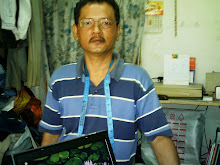There can be nothing more important than child safety. Happiness and health depend on it – without it, the future is bleak for the adult-to-be. But nobody can be watching their children at all times of the day or night – nor would it be healthy. Rather, the good parent or guardian is one who is able to teach the child guidelines for safety. This way, they are effectively present with the child at all times, and can put their minds at rest. From the moment of a child’s conception until adulthood and beyond, the child is exposed to countless dangers. Infant mortality rates only began to improve in the last century, , and especially with the development of antibiotics. Worldwide, the worst dangers for kids in terms of mortality continue to be pneumonia and dehydration caused by diarrhea. In developed countries, abuse and AIDS pose a threat.
The first rule of child safety is “don’t talk to strangers”, but we all know that the perpetrators of unwonted violence on children tends to be people he or she knows well, often even members of the family. Children have difficulty in any case grasping the concept of “stranger”. They should be taught to always check with the parent or guardian before going anywhere, and to talk to a trusted adult if they feel scared or confused about a particular contact person.
Adults should not forget that older children, between 11 and 17, are equally at risk from victimisation, and extra efforts should be made as the teenager inevitably begins to have more freedom. Some people would like to be able to rely on a tracking device or mobile phone to keep tabs on a child, but a mechanical means cannot replace educating the child and maintaining a healthy, communicative relationship and an awareness of where the dangers might be.
Parents and guardians should take the chance to reinforce safety skills as it presents itself. If your child asks you about an incident which has occurred in your neighbourhood, answer frankly and with confidence, inviting discussion on safety rules. Rules will help so that a child knows how to define a dangerous situation and how to act on it. Make sure your children know who they can turn to at a time of crisis. Another nightmare all parents suffer from is the risk of fire. There are obvious rules here that a child must be made aware of, such as not playing with matches, not placing toys on heaters and never switching on the cooker.
In modern times, there are all kinds of dangers for the child which did not even exist when their parents were growing up, such as substance abuse, television and its possible negative influences and the thorny question of the internet .
You should talk to kids about the rewards and risks of Internet use, and there are also resources to help you regulate this.Check out, for example the useful workshop at NetSmartz.org. Online child sexual exploitation can be reported to to CyberTipline® at cybertipline.com. Accidents can always happen, but as with all aspects of child care, a little education goes a long way to preventing disaster.
Kelly Hunter operates http://www.child-safety-center.com and writes about Child Safety.
Article Source: http://EzineArticles.com/?expert=Kelly_Hunter
Child Home Safety
Monday, September 15, 2008
Subscribe to:
Comments (Atom)
